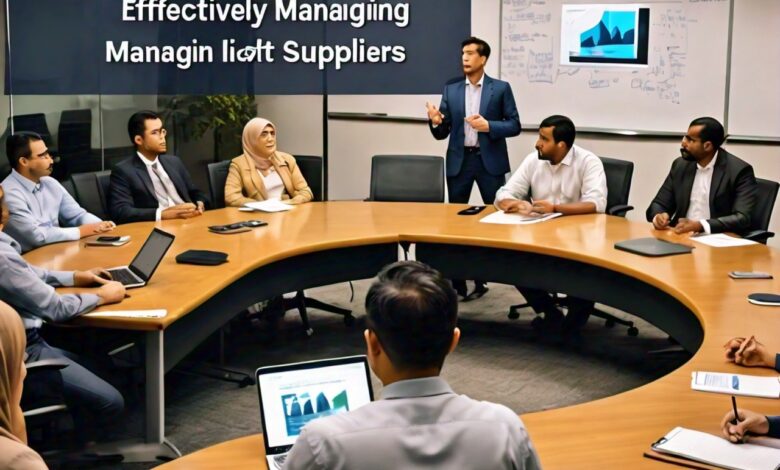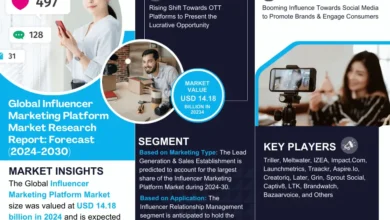How To Effectively Manage Difficult Suppliers


A smooth supply chain is the lifeblood of any business. But what happens when a supplier throws a wrench in the well-oiled machinery? Difficult suppliers can cause delays, disrupt production, and inflate costs.
The good news is, with the right approach, you can be conscious of How To Manage Difficult Suppliers.
Understanding the Why: Unveiling the Roots of Difficulty
Before diving into solutions, it’s crucial to understand why a supplier might be difficult. Here are some common reasons:
- Communication breakdowns: Misunderstandings about expectations, order specifications, or delivery timelines can lead to friction.
- Performance inconsistencies: Inconsistent quality, missed deadlines, or failure to meet agreed-upon specifications can create frustration.
- Financial strain: A supplier facing financial difficulties might need help to meet their obligations.
- Relationship issues: A lack of trust or respect between your company and the supplier can breed antagonism.
How To Manage Difficult Suppliers: A Four-Step Approach
Once you grasp the root cause of the issue, you can employ these strategies:
- Open Communication is Key: Schedule regular meetings to foster clear communication. Discuss expectations, address problems constructively, and work towards solutions collaboratively.
- Renegotiate the Terms: If the initial agreement is no longer tenable, consider renegotiating terms. This might involve adjusting pricing, delivery timelines, or quality standards to find a mutually beneficial arrangement.
- Leverage the Power of Collaboration: Difficult suppliers must not remain adversaries. Explore opportunities for collaboration. You could offer technical assistance or early payment terms in exchange for improved performance.
- Prepare for the Worst: If all else fails, be prepared to escalate the issue or find an alternative supplier. Document communication and performance issues meticulously to have a strong case if necessary.
The Art of the Ask: Effective Communication with Difficult Suppliers
Having established a roadmap for managing difficult suppliers, let’s delve deeper into the cornerstone of success: communication.
Here are some practical tips to ensure your message lands effectively:
- Be Clear and Concise: Craft clear and concise messages, outlining expectations and desired outcomes. Avoid ambiguity and ensure both parties are on the same page.
- Focus on “We” not “Me”: Frame communication as a collaborative effort towards a shared goal. This fosters a sense of partnership and reduces defensiveness.
- Utilize Multiple Channels: Don’t rely solely on email. Consider phone calls, video conferences, or in-person meetings for complex issues.
- Active Listening is Paramount: Practice active listening. Please pay close attention to the supplier’s concerns and acknowledge their perspective.
- Maintain a Professional Demeanor: Remain calm, professional, and respectful even in frustration. A positive attitude goes a long way.
How To Manage Difficult Suppliers: Documentation is Vital
Meticulous documentation is vital when dealing with difficult suppliers. It serves multiple purposes:
- Provides a Clear Record: A clear record of communication, agreements, and performance issues strengthens your position in case of disputes.
- Facilitates Review and Improvement: Reviewing past documentation helps identify recurring problems and areas where communication can be improved.
- Supports Escalation Efforts: If you need to escalate an issue, documented evidence becomes crucial for presenting a compelling case.
Renegotiating Terms with Difficult Suppliers
Renegotiating terms with a problematic supplier can be a delicate dance. Here’s how to approach it strategically:
- Gather Your Ammunition: Gather data to support your case before initiating negotiations. Document missed deadlines, quality control issues, or cost overruns. Industry benchmarks can also strengthen your position.
- Identify Areas for Improvement: Pinpoint specific areas where the current agreement falls short. Be clear about your desired outcomes, whether it’s stricter quality control measures, revised delivery timelines, or a more competitive price point.
- Offer Concessions, But Strategically: Be prepared to offer concessions in exchange for improvements from the supplier. This could include larger order volumes, prepayment options, or extended payment terms. However, don’t give away the farm – concessions should be strategic and balanced.
- Focus on Mutually Beneficial Outcomes: Frame the negotiation as a collaborative effort to find a solution that benefits both parties. Emphasize the long-term value of a strong supplier relationship.
- Maintain a Professional Demeanor: Remember, the goal is to reach a win-win solution. Maintain a professional and respectful demeanour throughout the negotiation process, even if discussions become heated.
Empowering Collaboration: Exploring Opportunities with Difficult Suppliers
While difficult suppliers can be frustrating, they don’t have to be permanent roadblocks. Here are ways to explore collaboration:
- Identify Shared Goals: Look for areas where your company’s and supplier’s goals overlap. Improved efficiency benefits both parties.
- Offer Technical Assistance: If a supplier struggles to meet quality standards, consider offering technical assistance or training programs to improve their capabilities.
- Joint Problem-Solving: Approach challenges as a team. Brainstorm solutions and leverage each other’s expertise to find innovative ways to overcome obstacles.
Conclusion:
By mastering the art of communication and maintaining thorough documentation, you can navigate the complexities of difficult suppliers with greater confidence.
AmrepInspect stands ready to be your partner in building a resilient supply chain. Our inspection services ensure your suppliers meet your standards, minimizing disruptions, and safeguarding your business.
FAQs
-
Can AmrepInspect Help?
Absolutely! AmrepInspect offers inspection services to ensure your suppliers are meeting your standards.
-
What if Communication Fails?
If communication efforts prove futile, consult a procurement professional to explore your options.









